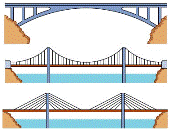Civil and Environmental Engineering, Department of

Department of Civil and Environmental Engineering: Faculty Publications
ORCID IDs
Kinnari Atit http://orcid.org/0000-0002-3287-6336
Document Type
Article
Date of this Version
2020
Citation
Atit et al. International Journal of STEM Education (2020) 7:38
https://doi.org/10.1186/s40594-020-00234-3
Abstract
Background: Spatial skills and mathematical ability have been repeatedly identified as critical for achievement in Science, Technology, Engineering, and Mathematics (STEM). Previous studies have identified correlations between spatial skills and mathematical achievement; however, questions remain regarding improvements in non-spatial areas associated with STEM achievement. The current study examined whether competency in spatial skills could be related to individuals’ motivation for mathematics. Measures of spatial skills and mathematics motivation were completed by 1056 seventh grade students.
Results: Using hierarchical linear modeling, spatial skills and math motivation were examined relative to students’ performance on a state standardized mathematics subtest. Results indicate that spatial skills and motivation interact to significantly predict students’ mathematics performance.
Conclusions: These results suggest that spatial skills in combination with motivation play a significant role in middle school students’ mathematics achievement.
Includes supplementary materials


Comments
© The Author(s). 2020 Open Access This article is licensed under a Creative Commons Attribution 4.0 International License,